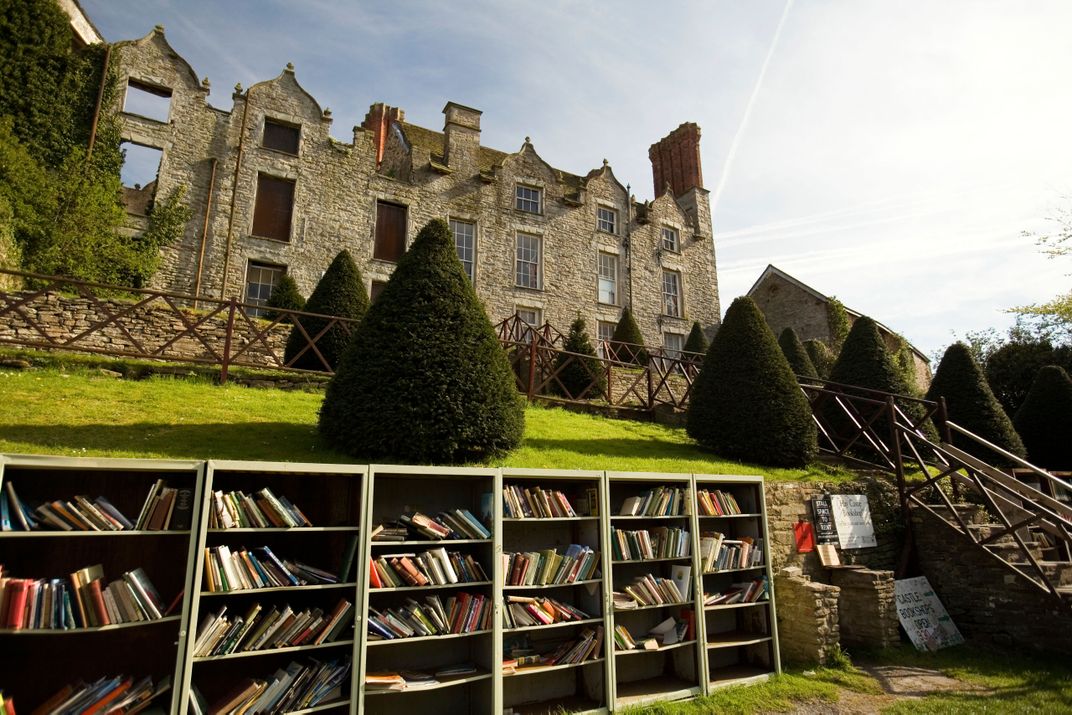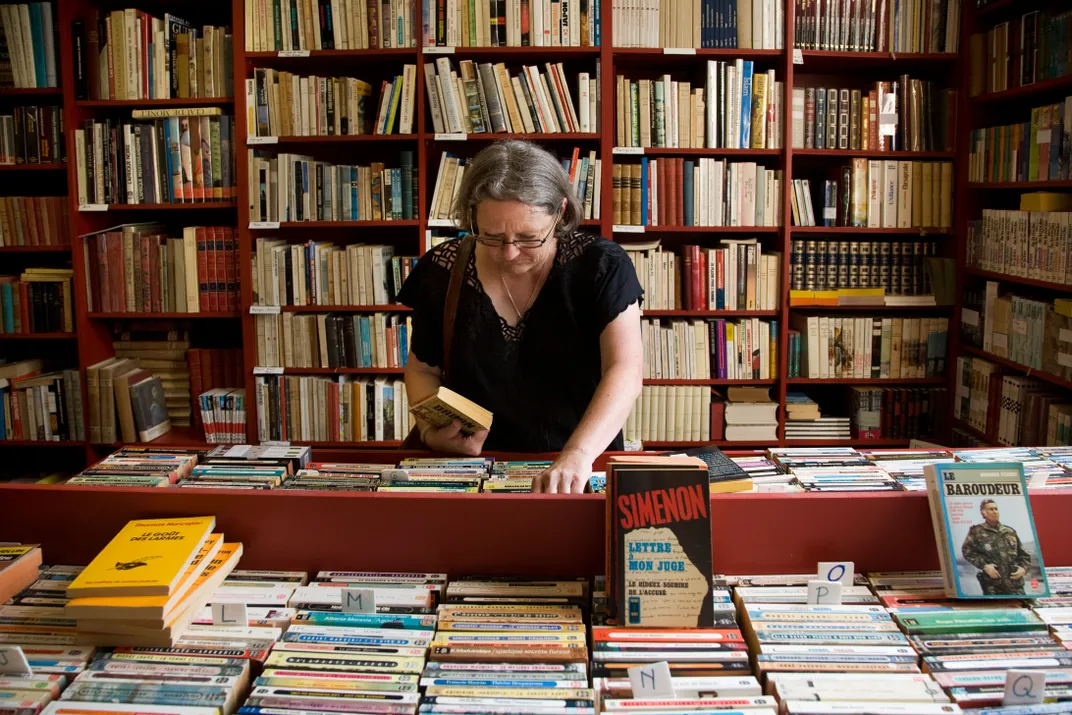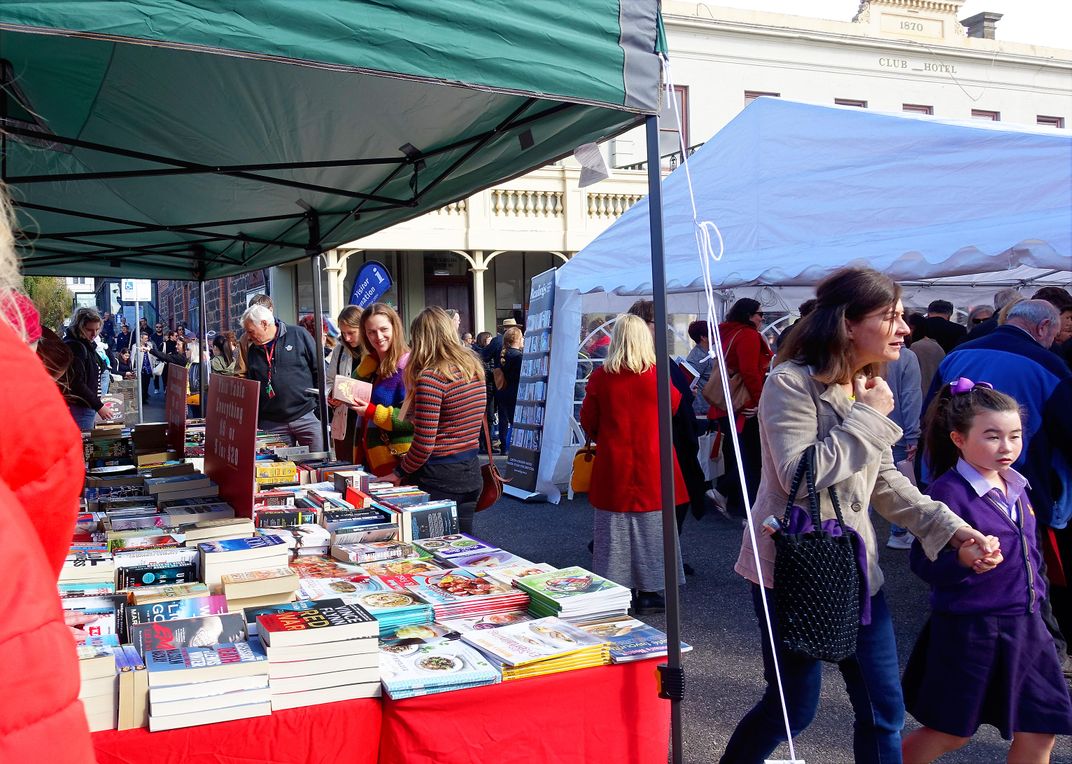Attention Bibliophiles: These Book Towns Should Be Your Next Vacation Stops
From Australia to Malaysia, these villages are prized for their abundance of bookstores
/https://tf-cmsv2-smithsonianmag-media.s3.amazonaws.com/filer/8b/9d/8b9de043-912a-4d39-8195-fb86401a19e8/hay-on-wye.jpg)
Like many places in the United Kingdom, Hay-on-Wye, a village of nearly 2,000 nestled in the rolling countryside of Wales, offers many of the amenities one would expect. There’s the local pub serving beer on tap and platters of fish and chips, along with a medieval castle standing sentry over the community. But what sets Hay-on-Wye apart from neighboring towns is the sheer abundance of bookstores punctuating its meandering streets. Upon last count, it’s home to some 20 bookshops—a number that eclipses many cities 50 times its size—and is what helped solidify its classification as an official Book Town.
The designation is thanks to Richard Booth, an antiquarian and academic who, in 1961, decided to turn some of the empty storefronts in his hometown into used bookstores. As word spread, other booksellers from around Europe began setting up shop in Hay-on-Wye and soon the bibliophiles followed, thus the first Book Town was born.
“His idea was to create a place where people could come and read old books,” says Gunnel Ottersten, the current president of the International Organisation of Book Towns. “After that, their successful idea spread across the globe and more and more Book Towns popped up.”

Today there are more than a dozen towns around the world with the designation, including locales in Malaysia and Australia. By the International Organisation of Book Towns' definition, a Book Town is “a small, preferably rural, town or village in which secondhand and antiquarian bookshops are concentrated.” Other towns that meet this criteria and are members of the organization include Borrby, Sweden; Redu, Belgium; Kampung Buku, Malaysia; Clunes, Australia; and Montereggio, Italy. Currently, there are no member towns representing the United States, but that can always change as new places are constantly being added into the fold. (There is an unofficial list of book-centric towns that aren’t members of the organization that do include U.S. locations, such as Archer City, Texas, and Stillwater, Minnesota.)
“Each year we get new requests from villages to join, and the organization is slowly growing all over the world,” Ottersten says. “I just got back from Bulgaria, visiting and welcoming our most recent member in Vratsa [a province in northwestern Bulgaria] and the small village Chelopek."

To become eligible for the book town designation, a town must submit an application with the International Organisation of Book Towns. From there, representatives from membering towns take a vote on whether or not to give the town an official designation. (So far, no applications have been rejected and the number of admitted towns varies from year to year.)
Ottersten is quick to point out that although each of the member towns have a preponderance of bookshops, that’s often where the similarities end.
“All of the members look quite different,” she says. “Some of the villages have many small private shops, while some have larger shops with more people working together, and some are organizations steered by volunteers.”

For instance, Clunes in Victoria, Australia, holds a monthly book talk called "Sunday Series" that hosts authors to discuss their latest releases, while Hay-on-Wye, Wales, has a preponderance of shops hyper focused on specific genres, including The Poetry Bookshop (one of the only second-hand bookshops in the United Kingdom specializing in poetry), Murder and Mayhem (crime and detective fiction), Arden Booksellers (zoology, biology and beekeeping), and Rose’s Books (children’s literature). The village is also home to the Hay Festival, a ten-day event celebrating art and literature each May.
The International Organisation of Book Towns also holds a biennial conference, as a way to connect all of its member towns and help spread the word about the organization. A different Book Town hosts the event each time—next year's will be in Borrby, Sweden.
As technology is increasingly part of our lives, it’s particularly important to keep the printed word alive. As Ottersten puts it, “The feel of a book, the smell, the weight and the knowledge that this particular book might be more than a hundred years old makes it even more important to preserve the physical book as a complement to technology.”